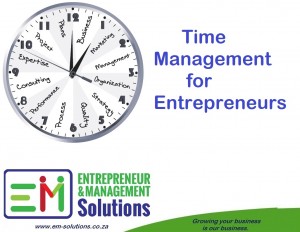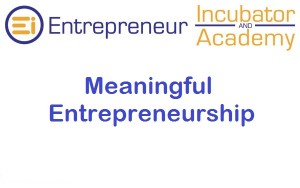21 Irrefutable laws of leadership
No blog series on Leadership will ever be complete without an extract from one of John Maxwell’s books. We have most of them in our library and refer to them all the time for our own work and to clients.
Leadership is leadership, no matter where you go or what you do. The true principles of leadership remain the same, irrespective of time, culture or even new technology.
 In his book, The 21 irrefutable laws of leadership, John C. Maxwell explains that real leadership principles stand the test of time – they are irrefutable. These principles can be explained by 21 laws. “Each law is like a tool, ready to be picked up and used to help you,” says Maxwell. “Learn them all, and people will gladly follow you.”
In his book, The 21 irrefutable laws of leadership, John C. Maxwell explains that real leadership principles stand the test of time – they are irrefutable. These principles can be explained by 21 laws. “Each law is like a tool, ready to be picked up and used to help you,” says Maxwell. “Learn them all, and people will gladly follow you.”
The law of the lid
Leadership ability is the lid that determines a person’s level of effectiveness. No matter how smart or talented you are, without leadership you can only go so far. “The higher you want to climb, the more you need leadership. The greater the impact you want to make, the greater your influence needs to be.”
The law of influence
According to Maxwell, leadership is influence – nothing more, nothing less. If you cannot influence others, they will not follow you. True leadership comes only from influence, which cannot be mandated. It must be earned.
The law of progress
Leadership develops daily, not in a day. “Becoming a leader is a lot like investing successfully in the stock market. If your hope is to make a fortune in a day, you are not going to be successful.” You do not become a leader overnight. It takes time to hone your skills.
The law of navigation
Anyone can steer the ship, but it takes a leader to chart the course. In order to be a successful leader, you need to develop a leadership strategy that will take you to your destination, with the buy-in from those who follow.
The law of E.F. Hutton
E.F. Hutton is a financial services company with the motto, “When E.F. Hutton speaks, people listen.” To find the real leader in an organisation, just look at who the employees listen to. “People listen not necessarily because of the truth being communicated in the message, but because of their respect for the speaker.”
The law of solid ground
Trust is the foundation of leadership. “To build trust, a leader must exemplify competence, connection, and character.” Trust makes leadership possible. Without it, no one will follow.
The law of respect
People do not follow others by accident. They follow individuals who they respect, and not necessarily the person with the title. “The greatest test of respect comes when a leader creates a major change in an organisation.”
The law of intuition
The great sports coaches refer to intuition as being in the zone. “Leaders see everything with a leadership bias, and as a result, they instinctively, almost automatically, know what to do.” This read-and-react instinct is present in all great leaders.
The law of magnetism
Effective leaders are always on the lookout for good people. According to this law, you attract people into your life who have similar leadership ability as you do. “If you think the people you attract could be better, then it is time for you to improve youself.”
The law of connection
Leaders touch a heart before they ask for a hand. You cannot move people to action unless you first move them with emotion. The heart comes before the head. “The stronger the relationship and connection between individuals, the more likely the follower will want to help the leader.”
The law of the inner circle
A leader’s potential is determined by those closest to him or her. “When you have the right staff, potential skyrockets. Hire the best staff you can find, develop them as much as you can, and hand off everything you possibly can to them.”
The law of empowerment
Only secure leaders give power to others. Theodore Roosevelt said it best, “The best leader is the one who has sense enough to pick good men to do what he wants done, and self-restraint enough to keep from meddling with them while they do it.”
The law of reproduction
It takes a leader to raise a leader. “An environment where leadership is valued and taught becomes an asset to a leadership mentor. If a company has strong leaders – and they are reproducing themselves – then the leadership just keeps getting better and better.
The law of buy-in
People first by into the leader, then the vision. “People do not at first follow worthy causes. They follow worthy leaders who promote worthwhile causes.” Nelson Mandela had the buy-in of the people because he was a worthy leader with a worthwhile cause. To get the buy-in from people, you need to have both a worthy leader and a worthy cause.
The law of victory
Leaders find a way to win for their team. “When the pressure is on, great leaders are at their best. Whatever is inside them comes to the surface.” A good leader will find out what needs to be done in order to win, and then do it, no matter what.
The law of the big mo
Momentum is a leader’s best friend. Every sailor knows that you cannot steer a ship that is not moving. Similarly, strong leaders understand that to change direction, you first have to create forward progress. “With enough momentum nearly any kind of change is possible.”
The law of priorities
“Examine the life of any great leader, and you will see him putting priorities into action,” says Maxwell. Activity does not necessarily equal accomplishment. A good leader knows which activity is a priority. A great leader satisfies a number of priorities with a single activity.
The law of sacrifice
“A leader must give up to go up.” Sacrifice is an ongoing process in leadership. The nature of the sacrifice will be different for every person, such as a pay-cut or less free time. FW de Klerk worked to dismantle apartheid and the cost was his career itself.
The law of timing
“When to lead is as important as what to do and where to go.” When the right leader and the right timing come together, incredible things happen. For example, Winston Churchill only became prime minister of England when he was in his sixties, but showed great leadership during the Second World War.
The law of explosive growth
To add growth, lead the followers. But to multiply growth, lead the leaders. Leaders are harder to hold on to because they are energetic and entrepreneurial, and they tend to want their own way. “Leaders who develop leaders experience an incredible multiplication effect in their organisations that can be achieved in no other way.”
The law of legacy
A leader’s lasting value is measured by the legacy left behind. This is the most important law of leadership, yet few leaders get it right. “A legacy is created only when a person puts the organisation into the position to do great things without him or herself.”




 When your business becomes successful, it does not mean that it is time for you to sit back and relax. Successful entrepreneurship is a constant work. You do not stop working on it. It requires consistent effort.
When your business becomes successful, it does not mean that it is time for you to sit back and relax. Successful entrepreneurship is a constant work. You do not stop working on it. It requires consistent effort.
 week I had the task of joining another South African queue, this time at the Home Affairs office in Wynberg. When I got there, I was issued with a queue number: No 92, and told it would be about 2 hrs until I was attended to. So we stood and waited like many of others around us. Now the number system thing allowed us to not have to stand in the actual queue to claim our position, so many wandered off to get breakfast or to browse the local shops in the centre.
week I had the task of joining another South African queue, this time at the Home Affairs office in Wynberg. When I got there, I was issued with a queue number: No 92, and told it would be about 2 hrs until I was attended to. So we stood and waited like many of others around us. Now the number system thing allowed us to not have to stand in the actual queue to claim our position, so many wandered off to get breakfast or to browse the local shops in the centre.